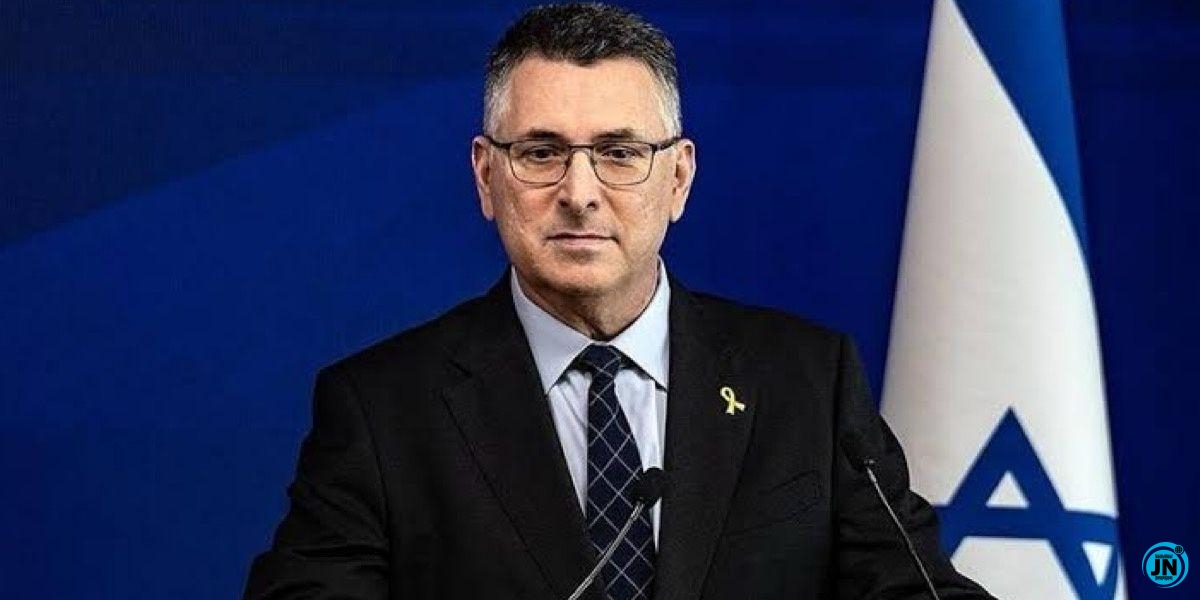
Israel has claimed a major strategic success in its ongoing military campaign against Iran, stating it has significantly delayed Iran's ability to build a nuclear weapon.
According to senior Israeli officials, sustained airstrikes and covert operations have hampered Iran’s nuclear development program by at least two years, if not more.
Foreign Minister Gideon Saar made this revelation during an interview on Saturday, explaining that Israeli intelligence agencies are confident in their assessment that Iran’s nuclear ambitions have been effectively disrupted.
“According to the assessment we hear, we already delayed for at least two or three years the possibility for them to have a nuclear bomb,” Saar said in a conversation with German news outlet Bild. “We will do everything that we can do there in order to remove this threat.”
This bold statement comes amid growing global concern over the intensifying military standoff between Israel and Iran, which began on June 13 when Israel launched targeted strikes on Iranian nuclear and military facilities.
Since that time, the conflict has escalated rapidly, drawing in regional actors and raising the specter of a broader Middle Eastern war, with Western governments urgently calling for de-escalation.
U.S. President Donald Trump, who has been closely following the conflict, issued a stern warning just a day before Saar’s interview, declaring that Iran has “a maximum of two weeks” to change its course and avoid the possibility of American military intervention.
“If somebody’s winning, it’s a little bit harder to do,” Trump said, signaling that the U.S. may allow Israel to continue its operations without pressuring for a ceasefire or return to negotiations at this time.
On Saturday, the Israeli Defense Forces confirmed that new air raids had been conducted, striking missile storage facilities and launch sites in central Iran, in what Israel described as a preventative measure.
In retaliation, Iranian forces have launched a massive counteroffensive, firing more than 450 missiles and deploying over 400 drones against Israeli territory, according to Israeli military reports.
Iran’s Revolutionary Guard stated that their strikes have been concentrated on Israeli air bases and military infrastructure, but Israeli sources confirm civilian areas have also been hit.
The human toll is mounting. In Iran, the Human Rights Activists News Agency, a U.S.-based non-governmental organization, reported that at least 657 people have died so far, including 263 civilians caught in the crossfire.
Israel has reported 25 deaths resulting from Iranian missile and drone attacks, along with dozens of injuries. In the northern city of Haifa, 19 people were hospitalized following a direct hit on a residential area on Friday.
Despite international appeals for peace, diplomatic efforts have faltered. On Friday, representatives from the UK, France, and Germany met with Iranian Deputy Foreign Minister Abbas Araghchi in Geneva, pressing him to return to nuclear negotiations.
French Foreign Minister Jean-Noel Barrot commented: “We invited the Iranian minister to consider negotiations with all sides, including the United States, without awaiting the cessation of strikes, which we also hope for.”
However, Araghchi firmly rejected the proposal, stating in an interview with NBC News: “We’re not prepared to negotiate with them (the United States) anymore, as long as the aggression continues.”
U.S. President Trump also dismissed Europe’s mediation efforts, stating that Iran has no intention of engaging with European leaders. “Iran doesn’t want to speak to Europe. They want to speak to us. Europe is not going to be able to help in this,” he remarked.
Meanwhile, the International Atomic Energy Agency (IAEA) has issued a statement noting that Iran is now enriching uranium to 60% purity—an unprecedented level for a non-nuclear weapons state—but added there is no verified evidence that Iran has yet assembled a nuclear weapon.
IAEA Director General Rafael Grossi cautioned against drawing conclusions, calling specific predictions about Iran's ability to produce a bomb “pure speculation.”
British Foreign Secretary David Lammy voiced serious concern, warning that the situation was entering a “perilous moment” and urging all parties to avoid further regional destabilization.
Meanwhile, Iranian Deputy Foreign Minister Araghchi arrived in Istanbul to attend a meeting of the Organisation of Islamic Cooperation (OIC), where the ongoing conflict is expected to top the agenda.
As tensions escalate, Switzerland has announced the temporary closure of its embassy in Tehran as a security precaution, but confirmed it will continue to represent U.S. interests in Iran through other diplomatic channels.

